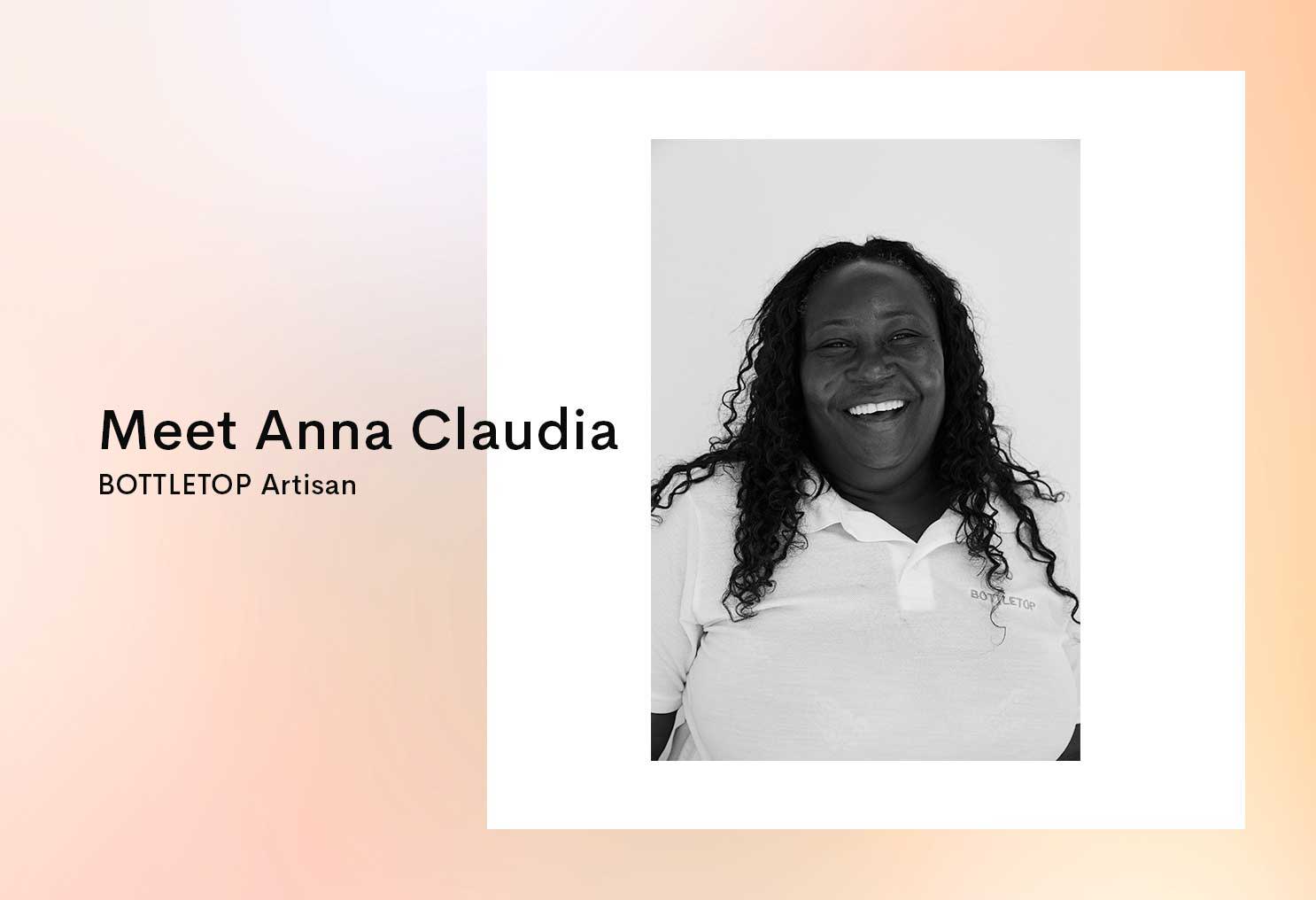Meet BOTTLETOP artisan Ana Claudia Santana de Assis
One of the skilled women who works at our atelier in Brazil
Interview by Antonia Petta

Ana Claudia Santana de Assis’ hands can be considered part of Salvador’s historical and spiritual heritage. Born and raised in the sun-soaked Brazilian city, where even rain is liquid sunshine, this artisan has been, for the last 15 years, part of the workshop maintained by BOTTLETOP in the capital of Bahia, a state in the northern region of the country. It is there that she injects life into each of the pieces made from aluminium ring pulls collected in the area, helping not only to develop the sustainable bags carried by the brand, but also contributing to a more diverse and inclusive environment within the community.
We spoke to Ana to find out more.
What memories do you have of growing up in Salvador?
I had a proper childhood. I bathed in the river, played with rainwater, climbed trees; things that boys and girls won’t have today, as today’s children want only electronic things. That was not the case during my youth. I used to come home from school and spend the afternoon indoors because my mother had to leave for work. My mother always taught me: if you want something, you’ll have to work for it.
How easy was it for you to get into the work market?
I finished high school, but didn’t apply for undergraduate education because I already had two children and needed to work. I had to choose between maintaining my house or going to college and I gave preference to the future of my children. I had my first born, a boy, when I was 18, and my daughter at 28. Today, at the age of 14, she studies but does not work.
How did you get to the job you currently have at BOTTLETOP?
For me, it was always pleasurable to work with handcraft. I knew Luciano dos Santos [production coordinator for BOTTLETOP in Salvador, Bahia] from my first [social] project, called Anjo de Rua, which I started working on when I was 14. When I arrived at BOTTLETOP, Luciano offered us a course on the process of building bags from scratch: picking, washing and sanding the aluminium ring pulls, for example. Then we learned crochet and finishing techniques, such as painting. All of this has great value. The resources our government currently offers, for those who really want to learn something, did not exist in my time. If we wanted to take a course, we had to pay for it. Then, from a professional colleague, Luciano became my boss. And a very good boss, by the way. He doesn’t just treat us like employees, he knows how to respect us in a personal way. We are here as a family. We are a community within the community.
Do projects with social impact in the community empower you?
I’m a Black woman, born in what they call an ‘underprivileged community’. Today, I am hired as a professional worker with a formal contract, and I have health insurance. Learning a skill was something that gave me dignity, and I do my job with great pride. I have always valued my independence.
As a woman, have you seen any generational changes in your family?
I can give my daughter opportunities that I didn’t have myself. I didn’t have a complete education but I want my daughter to go to college. I think one thing that’s changed is the kind of closeness between mother and daughter. We are friends; in the past I feel parents didn’t have much to say to their children. When I leave work I go straight home to be with her, and even on weekends I like to stay home with her. I don’t work for myself, I work for them - my children.
Where do you see yourself in the future?
I’ve always believed that what I have to achieve will be achieved right here in Salvador. I really like being close to the land. If I ever win the lottery, I’ll live in the middle of the roça [a Brazilian informal term for ‘backcountry’]. Nowadays you see people living on top of each other. I want a house with a yard where I can grow my plants here in the city. The most beautiful place in Salvador is the Cristo, at the Barra. One day, I watched the sunset from the Cristo and that was it for me: I fell in love.

